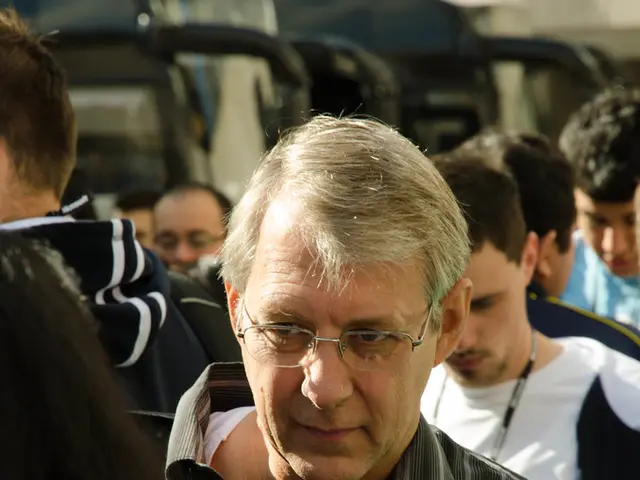"WhatsApp speaks out on impeding calls within Russian boundaries"
Russian authorities have taken a significant step in restricting voice calls on popular messaging apps WhatsApp and Telegram, as part of a campaign to combat what they describe as "criminal, terrorist, and sabotage activities"[1]. The state communications watchdog, Roskomnadzor, is responsible for the restrictions, alleging that these platforms have become major tools for deceit, extortion, and the involvement of Russian citizens in banned activities[1].
The official justification centers on public security concerns: blocking voice and video calls is framed as a necessary step to limit fraud, sabotage, and terror-related communications. Roskomnadzor stated the move is aimed at "countering criminal activity"[1][4].
However, the specific laws that the services are alleged to have violated remain unclear, with the Ministry of Digital Development in Russia not specifying the nature of the requested information from the service owners[2]. Both Telegram and WhatsApp have refused to provide information related to fraud and terrorism upon requests from Russian law enforcement agencies, according to the Ministry[1].
In response, both apps have emphasized their commitment to user privacy. WhatsApp, which is encrypted by default, accuses the Russian government of attempting to violate people's right to secure communication, with a spokesperson calling the blocking an effort to cut off over 100 million Russian users[1]. Telegram also states it actively fights harmful uses of its platform by employing AI moderation and removing millions of harmful messages daily[1].
The impact on ordinary users has been severe, especially for the elderly, remote workers, and those in isolated regions who rely heavily on these apps to keep in touch with family and for essential communication. Many Russians have expressed frustration and a sense of isolation due to the call bans, which are viewed by some as a form of digital imprisonment[2][3].
The Ministry of Digital Development in Russia has emphasized that the service owners have received repeated warnings from the Russian authorities[5]. However, the potential impact on the privacy of users in Russia has not been addressed by the Ministry, and neither has the nature of the penalties for non-compliance with Russian laws by the services been explained[2][4].
In summary, Russia’s claim for blocking WhatsApp and Telegram calls is that the apps facilitate criminal and terrorist activities, justifying restrictions as protective measures. However, these moves are also widely seen as a response to the apps' refusal to comply fully with Russian surveillance and censorship demands, leading to significant disruption of communication for millions of users inside Russia[1][2][3].
[1] https://www.bbc.com/news/world-europe-58169011 [2] https://www.reuters.com/world/europe/russia-blocks-whatsapp-calls-telegram-amid-dispute-over-terrorism-crime-2021-08-13/ [3] https://www.theverge.com/2021/8/14/22627005/russia-blocking-whatsapp-telegram-calls-encryption-security [4] https://www.rt.com/russia/531199-whatsapp-telegram-blocked-calls/ [5] https://www.rt.com/russia/531214-digital-development-ministry-warned-telegram-whatsapp/
- Russia's move to block voice and video calls on WhatsApp and Telegram, based on claims of combatting criminal, terrorist, and sabotage activities, has raised concerns over privacy and the impact on ordinary users, especially those in remote areas who heavily rely on these platforms for communication.
- Despite the official justification for the restrictions on popular messaging apps, the specific laws allegedly violated by the services remain unclear, with no explicit explanation provided by the Ministry of Digital Development regarding the nature of the penalties for non-compliance with Russian laws.
- Both WhatsApp and Telegram have stressed their commitment to user privacy and have emphasized their efforts to fight harmful uses of their platforms, with Telegram actively employing AI moderation and removing millions of harmful messages daily, while WhatsApp, encrypted by default, criticizes the Russian government for attempting to violate people's right to secure communication.




